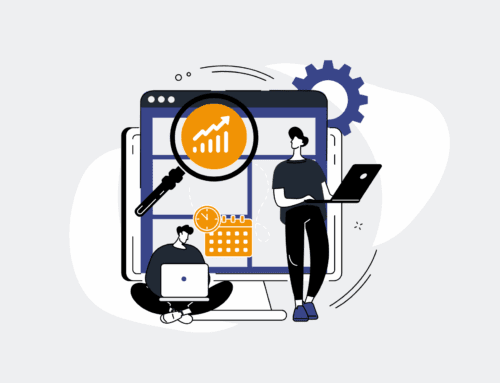The Legal Landscape of AI in Hiring: What Recruiters Need to Know
The integration of Artificial Intelligence (AI) into recruitment processes is no longer a futuristic concept; it’s a present-day reality rapidly reshaping how organizations identify, attract, and assess talent. From resume parsing and candidate screening to interview scheduling and predictive analytics, AI promises unparalleled efficiencies and insights. Yet, as with any transformative technology, its deployment brings a host of complexities, especially within the intricate legal landscape of employment and discrimination law. For recruiters and HR leaders, understanding these evolving legal frameworks isn’t just about compliance—it’s about building a robust, ethical, and defensible hiring strategy.
The Promise and Peril of AI in Recruitment
AI’s allure in recruitment is clear: it can automate repetitive tasks, reduce time-to-hire, and potentially uncover diverse talent pools that human biases might overlook. Tools leveraging machine learning can swiftly process thousands of applications, identify patterns, and even predict candidate success based on historical data. This efficiency can translate directly into significant operational cost savings and improved candidate experience, saving teams 25% or more of their day from manual work.
However, the very algorithms designed to streamline hiring can inadvertently perpetuate or even amplify existing human biases. If an AI system is trained on historical hiring data that reflects past discriminatory practices, it can learn and replicate those biases, leading to unintended and unlawful discrimination. The “black box” nature of some AI tools, where their decision-making processes are opaque, further complicates accountability and challenges the ability to identify and rectify discriminatory outcomes.
Key Legal Frameworks and Considerations
Navigating the legal implications of AI in hiring requires a deep understanding of existing and emerging regulations. It’s a dynamic field where technology is often moving faster than legislation.
Anti-Discrimination Laws (Title VII, ADA, ADEA)
The foundational pillars of employment law, such as Title VII of the Civil Rights Act (prohibiting discrimination based on race, color, religion, sex, and national origin), the Americans with Disabilities Act (ADA), and the Age Discrimination in Employment Act (ADEA), apply equally to AI-driven hiring processes. If an AI tool produces a disparate impact—meaning it disproportionately screens out candidates from protected groups—employers can face legal challenges, regardless of intent. The challenge lies in proving that an AI system’s criteria are job-related and consistent with business necessity, a high bar to clear when algorithms are not fully transparent.
State and Local Regulations (e.g., NYC Local Law 144, Illinois AIPA)
Beyond federal statutes, a growing number of state and local governments are enacting specific laws to govern AI in employment. New York City’s Local Law 144, for instance, requires employers using automated employment decision tools to conduct annual bias audits by independent third parties and to publish those audit results. Similarly, Illinois’ Artificial Intelligence Video Interview Act (AIVA) mandates consent and transparency for AI analysis of video interviews. These regulations create a complex patchwork that recruiters operating across different jurisdictions must meticulously navigate. Ignoring them can lead to significant penalties and reputational damage.
Data Privacy and Security (GDPR, CCPA, etc.)
AI systems are voracious consumers of data. From resumes and application forms to video interviews and assessment results, vast amounts of personally identifiable information are collected and processed. This raises critical data privacy concerns, bringing laws like the General Data Protection Regulation (GDPR) in Europe and the California Consumer Privacy Act (CCPA) into play. Recruiters must ensure that candidate data is collected with informed consent, stored securely, used only for stated purposes, and retained for appropriate periods. Data breaches involving AI systems can have severe legal, financial, and reputational consequences.
Navigating the Legal Minefield: Best Practices for Recruiters
For organizations striving for operational excellence and scalability, a strategic approach to AI in hiring is paramount. At 4Spot Consulting, we emphasize a proactive, outcome-driven methodology that ensures compliance while harnessing the power of automation.
Due Diligence in Vendor Selection
The onus is on the employer to ensure their AI tools are compliant. Before adopting any AI-powered recruitment technology, conduct thorough due diligence. Ask vendors critical questions about their data sources, bias mitigation strategies, transparency of algorithms, and compliance with relevant regulations. A strategic audit, much like our OpsMap™ service, can help identify your organization’s specific vulnerabilities and ensure that any new technology integrates seamlessly and compliantly with your existing infrastructure.
Human Oversight and Review
AI should serve as an assistant, augmenting human capabilities, not replacing human judgment entirely. Maintain robust human oversight at critical stages of the hiring process. Human reviewers can identify and correct algorithmic errors, provide context that AI might miss, and ensure that final hiring decisions are fair, equitable, and legally sound. This blend of AI efficiency and human discernment is essential for responsible implementation.
Transparency with Candidates
Informing candidates when AI is used in the hiring process is not just good practice—it’s increasingly a legal requirement. Be transparent about how AI tools are employed, what data they analyze, and how those insights contribute to hiring decisions. Providing avenues for candidates to challenge AI-driven outcomes or request human review builds trust and fosters a positive candidate experience, while also mitigating legal risks.
Regular Audits and Compliance Checks
Compliance with AI employment laws is not a one-time event; it’s an ongoing commitment. Implement a schedule for regular, independent bias audits of your AI tools. Monitor legislative changes at federal, state, and local levels to adapt your practices accordingly. This continuous improvement mindset is at the heart of our OpsCare™ framework, ensuring your automated systems remain optimized, secure, and compliant long-term.
4Spot Consulting’s Approach to Responsible AI in HR
At 4Spot Consulting, we believe that AI should be a tool for strategic advantage, not a source of legal liability. Our OpsMesh™ framework helps organizations design a cohesive strategy for automation and AI integration, ensuring that these systems eliminate human error, reduce operational costs, and drive scalability responsibly. Through our OpsBuild™ service, we implement intelligent automation solutions that integrate seamlessly, such as using Make.com to connect HR tech platforms with CRM systems like Keap, ensuring data integrity and compliance from the ground up.
We work with high-growth B2B companies to eliminate low-value work from high-value employees, allowing your team to focus on strategic initiatives rather than manual process management. Our expertise ensures that AI implementation isn’t just about efficiency, but also about building defensible, ethical, and legally sound hiring practices that enhance your employer brand and bottom line.
The future of AI in hiring is incredibly promising, but it demands vigilance and a proactive approach to the legal and ethical considerations it presents. By understanding the evolving landscape, implementing best practices, and partnering with experts who prioritize both innovation and compliance, recruiters can harness AI’s power to build stronger, more diverse, and legally sound workforces.
If you would like to read more, we recommend this article: Field-by-Field Change History: Unlocking Unbreakable HR & Recruiting CRM Data Integrity







